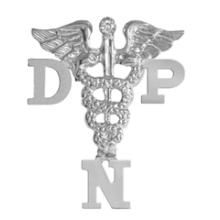 Pursuing a Doctor of Nursing Practice (DNP) degree requires many hours of study, clinical practice and hard work. However, graduating with a DNP can immensely improve a nurse’s job prospects. Getting a DNP degree can help a nurse qualify for collegiate teaching positions or advanced nursing careers. These leadership positions often have higher pay as well.
Pursuing a Doctor of Nursing Practice (DNP) degree requires many hours of study, clinical practice and hard work. However, graduating with a DNP can immensely improve a nurse’s job prospects. Getting a DNP degree can help a nurse qualify for collegiate teaching positions or advanced nursing careers. These leadership positions often have higher pay as well.
Deciding whether or not to work toward a DNP requires some research. Scheduling, curriculum and career path are some of the major considerations for potential DNP students. The following questions can help these potential students get the answers they need to decide if becoming a Doctor of Nursing Practice is the right choice for them.
Are DNP programs available online?
Since a hefty time commitment is needed to complete a DNP program, online availability can make a huge difference in the decision-making process. Technology advances have allowed many colleges and universities to make their DNP programs available online, allowing students from across the country to enroll. These programs offer the same curriculum as on-campus classes, but they are taught in a digital format.
Requirements for online DNP programs are varied, so it is important for potential students to research the programs they’re interested in. Some programs might require students to visit the campus while others may not. A master’s degree could be a prerequisite for some DNP programs as well. Some schools will allow students who are not yet registered nurses, others only accept current RNs.
In addition, the admission requirements, course materials and other costs can vary from one school to the next. Learning all of the details about a program ahead of time can make it easier for students to make a decision on which school to choose.
What is the difference between a DNP and a PhD in Nursing?
Doctor of Nursing Practice programs are not the only doctoral education option for nursing students. Doctor of Philosophy (PhD) in Nursing is a program that has some similarities to DNP programs, but there are many differences as well. Differentiating between the two programs is an important step for students who aren’t sure which one to choose.
The major difference between a DNP and PhD in Nursing is the focus. DNP programs are designed to teach clinical nursing skills at the highest possible level. A PhD in Nursing focuses more on nursing as a science. Graduates of a DNP program will have the clinical expertise to help them obtain hands-on roles and leadership positions within healthcare facilities. Graduates of PhD programs will have the research skills needed for positions in academia or research laboratories.
What are the career options with a DNP?
Anyone interested in learning advanced clinical nursing practices could benefit from a DNP degree program. Graduating from a DNP program provides nurses with the knowledge to work in the highest positions within their field. DNP graduates are particularly well-suited for certain professions and career fields, including:
- Nurse administrators
- Nurse practitioner
- Nurse educator
- Policy improvement
- Chief nursing officer
- Director of a clinic or department
Some positions might require additional certifications or licensure, as this could vary based on position, company or location. Graduates should always check their state’s requirements before job-searching.









